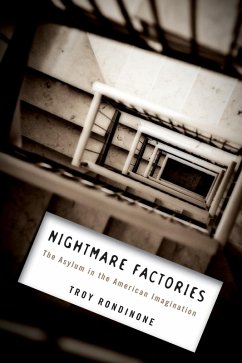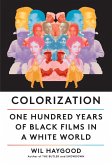How the insane asylum came to exert such a powerful hold on the American imagination.Madhouse, funny farm, psychiatric hospital, loony bin, nuthouse, mental institution: no matter what you call it, the asylum has a powerful hold on the American imagination. Stark and foreboding, they symbolize mistreatment, fear, and imprisonment, standing as castles of despair and tyranny across the countryside. In the "e;asylum"e; of American fiction and film, treatments are torture, attendants are thugs, and psychiatrists are despots. In Nightmare Factories, Troy Rondinone offers the first history of mental hospitals in American popular culture. Beginning with Edgar Allan Poe's 1845 short story "e;The System of Dr. Tarr and Prof. Fether,"e; Rondinone surveys how American novelists, poets, memoirists, reporters, and filmmakers have portrayed the asylum and how those representations reflect larger social trends in the United States. Asylums, he argues, darkly reflect cultural anxieties and the shortcomings of democracy, as well as the ongoing mistreatment of people suffering from mental illness. Nightmare Factories traces the story of the asylum as the masses have witnessed it. Rondinone shows how works ranging from Moby-Dick and Dracula to One Flew Over the Cuckoo's Nest, Halloween, and American Horror Story have all conversed with the asylum. Drawing from fictional and real accounts, movies, personal interviews, and tours of mental hospitals both active and defunct, Rondinone uncovers a story at once familiar and bizarre, where reality meets fantasy in the foggy landscape of celluloid and pulp.
Dieser Download kann aus rechtlichen Gründen nur mit Rechnungsadresse in A, B, BG, CY, CZ, D, DK, EW, E, FIN, F, GR, HR, H, IRL, I, LT, L, LR, M, NL, PL, P, R, S, SLO, SK ausgeliefert werden.









